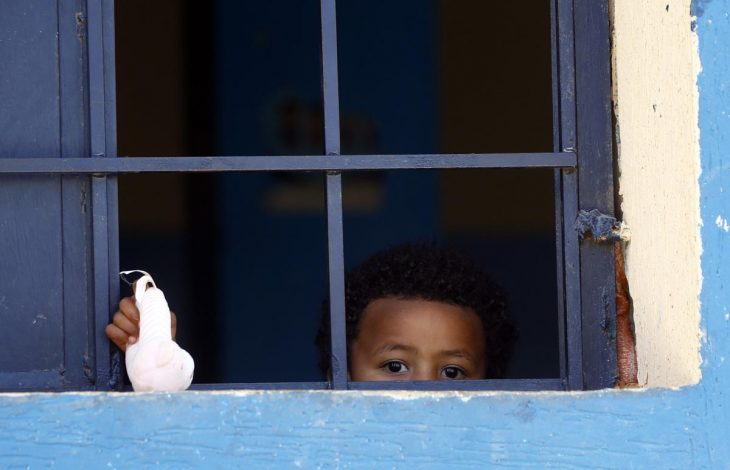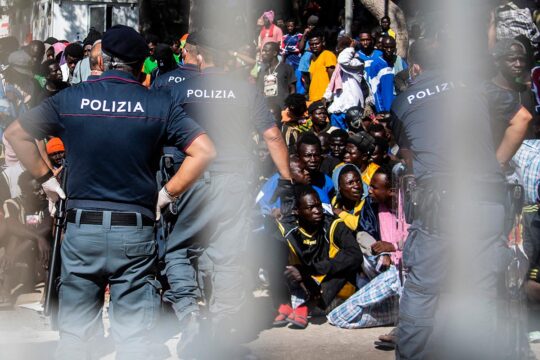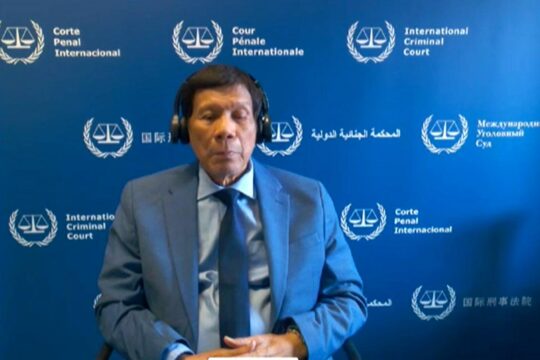Human trafficking takes many forms. The Council of Europe Convention on Action against Trafficking in Human Beings, ratified by 47 States, defines it as, at a minimum, “sexual exploitation, forced labour or services, slavery or practices similar to slavery, servitude and the removal of organs”. Nikita Malik, director of the Centre on Radicalisation and Terrorism at the Henry Jackson Society, says it often also has links to terrorism. She cites Islamic State (IS) abduction and enslavement of Yazidi women and Boko Haram abduction of women and girls to generate revenue through sale and ransom payments. She says there is increasing international concern about the way that such non-state actors in an armed conflict “are able to buy and sell individuals, not just women but men and children as well, in order to raise money for their groups”.
Céline Bardet, an international criminal lawyer who heads the NGO We are not Weapons of War says another key piece of international legislation is the United Nations’ Palermo Convention on organized transnational crime which came into force in 2003 and two of its protocols: the Protocol to Prevent, Suppress and Punish Trafficking in Persons, especially Women and Children, and the Protocol against the Smuggling of Migrants by Land, Sea and Air. She points out that those who ratify it have the obligation to incorporate it into their national legislation.
The crimes against migrants in Libya
But while many countries define human trafficking as a crime in their national law, it is not a crime as such under the Rome Statute of the International Criminal Court (ICC). Under its Statute, the ICC is tasked with prosecuting individuals for the gravest international crimes – genocide, crimes against humanity and war crimes. These nevertheless include constitutive elements that are often linked to human trafficking, such as enslavement, imprisonment, torture, rape and sexual slavery.
In this context, the ICC’s Office of the Prosecutor (OTP) says it is “continuing to follow with concern the situation related to migrants transiting through Libya”. “The information collected by the Office to date indicates that torture, unlawful imprisonment, rape and other crimes are committed against migrants throughout their journeys and in both official and unofficial detention centres,” the OTP told JusticeInfo. “The evidence implicates individuals, militias and State actors in the migrant smuggling and trafficking business in many parts of Libya, including Misrata, Al-Zawiyah, Tripoli and Bani Walid.”
According to this E-mail response from the ICC, “The Prosecutor is currently determining whether crimes against humanity or war crimes (…) may have been committed against these individuals, and if so, whether any alleged crimes fall within the jurisdiction of the Court”.
Under pressure from NGOs
“You could show that there is slavery, that there is systematic torture,” says Bardet. “Does that constitute a crime against humanity? You have to show that it is done in the context of a widespread and systematic attack against a civilian population. And I think the elements are there, so she [ICC Prosecutor Bensouda] absolutely has the competence to pursue migrant trafficking as a crime against humanity.”
Malik says the ICC could also go after cases of “individuals who have been trafficked by Islamic State and sold in human market places in Libya”. She says Libya is a potential option because whereas the ICC currently has no jurisdiction over Iraq and Syria it has been seized of the situation in Libya since 2011.
Being a court of last resort, meant to complement national jurisdictions, the ICC says that it is “cooperating with Libya and a number of States and organizations to support national investigations and prosecutions that relate to human smuggling and trafficking through Libya”. It won’t reveal any details, but Bardet says her organization is one of these.
“We are working on Libya,” she told JusticeInfo. “We have been pushing for them to work on the trafficking of migrants. For the past year we have been in communication with the ICC on rape, migrants in Libya, use of migrants to rape and be raped. We aim to submit a complaint, before the end of the year I hope.” And to help do this, she says, her organization is working on a platform with Italian and Libyan NGOs and lawyers “to pool our expertise and information”.
Why the ICC is so slow
In a 2016 policy paper, the ICC Prosecutor mentioned human trafficking as a crime on which she wished to focus on. She also told the UN Security Council in May 2017 that she was considering opening an investigation into crimes against migrants in Libya, including human trafficking. In May this year she told the UN Security Council that her team “continues to assess the feasibility of bringing cases before the ICC in relation to crimes against migrants”.
“She is always making the same statements,” says Bardet, who regrets that things are not moving faster. Bardet thinks the ICC lacks expertise and creativity in this thorny area but “the fundamental problem is [the Prosecutor] must target individuals, and who do you choose? And then EU states have funded the Libyan Coast Guard, it’s touchy”.
Malik agrees that it is difficult. Asked why no international court has yet prosecuted human trafficking, she cites three factors. “The first is evidence,” she said. “It is very difficult to gather evidence against individuals who have done this kind of thing, whether it's human trafficking or sexual violence. The second is stigma: victims don't necessarily want to talk about these stories, they might not trust the people they're talking to. And the third most important thing is that the laws are not fully equipped to help the victims.”
More paperwork?
Even if cases do not fall under the ICC’s jurisdiction, Fatou Bensouda has other options. “What she could do is carry out preliminary investigations and send her findings to the States concerned,” says Bardet. “There are cases that could be pursued in Italy, or in France.”
But Bardet also thinks the ICC could do more. “The militia leaders are already identified. She could very well file an indictment against Libyan militia leaders.”
While the ICC is slow, Bardet thinks it is a question of resources rather than political will. “Bensouda says she wants to move forward, she wants a historic case,” she told JusticeInfo. According to the OTP, “the Prosecutor has expressed her desire before the conclusion of her term [in 2021] to initiate a comprehensive Office policy paper on modern slavery within the Rome Statute legal framework”. This may not sound like a case yet.







